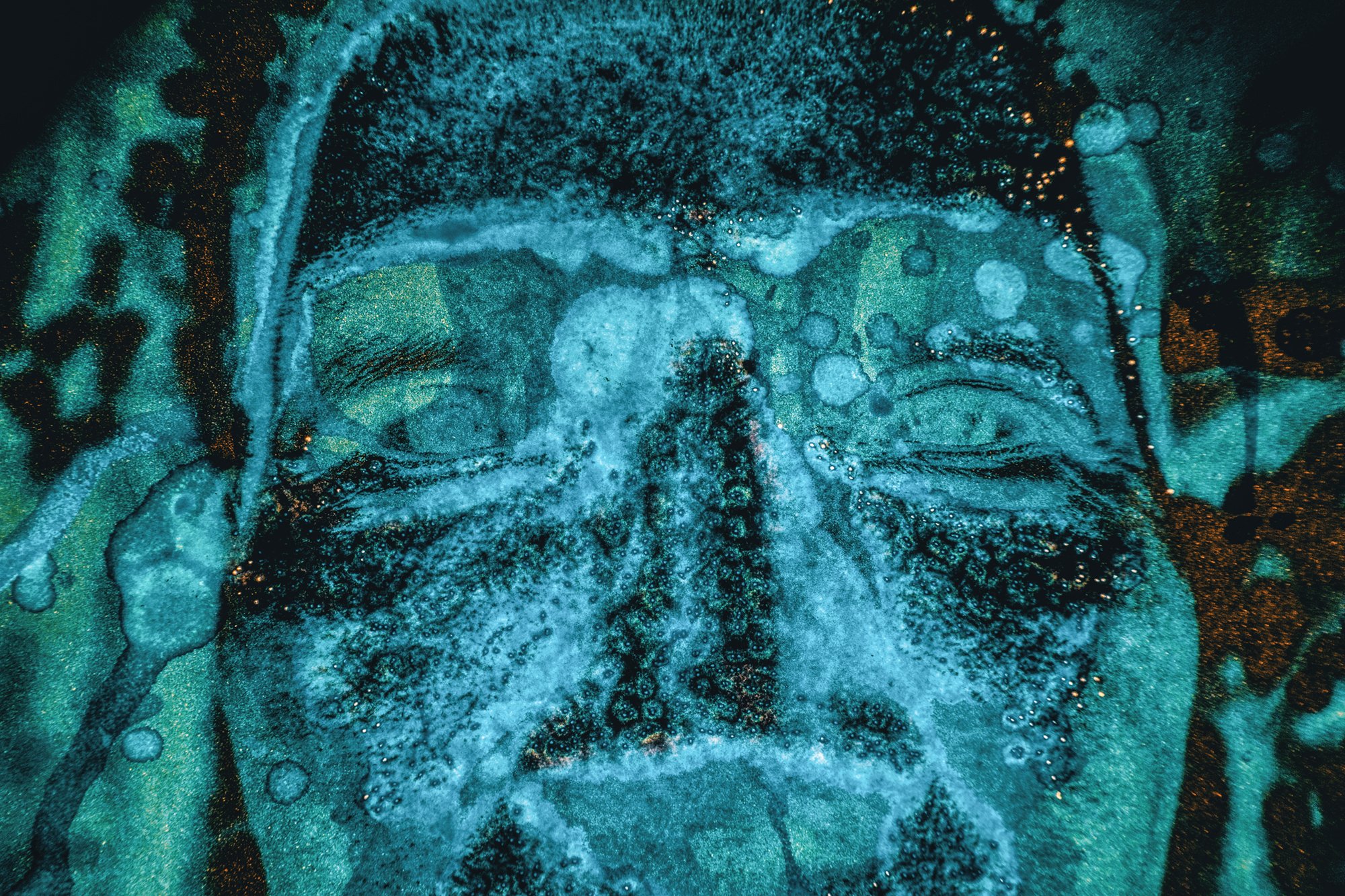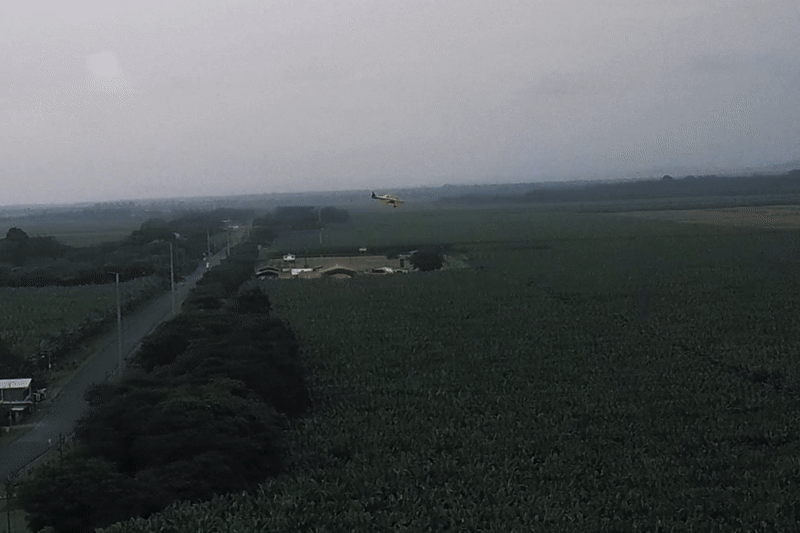Inherited Injustices.
SIXAOLA, LIMÓN, COSTA RICA.
A timeless reality of colonialism.
Modern slavery, broken health conditions, blood-stained sheets, unsafe water, burnt skin. The realities faced by the inhabitants of Sixaola, Limón.
Exploitation and Environmental Crisis in Sixaola.
An inheritance believed to have changed the course of Costa Rica, Minor Keith a colonialist from The United States left an environmental and social injustice and slavery that decades after his legacy continues to be perceived.
In 1877 Keith took charge of a contract agreed with the Costa Rican government to create a railroad to expand the coffee exports, the contract presented multiple difficulties and financial struggles for the country, leading to a new agreement that gave Keith a 99-year lease allowing him to operate the railroad, control of Limon’s port as well as 800,000 acres tax-free.
The railroad was completed in 1890, but the flow of passengers and cargo was insufficient to pay Keith's debts and investments. As early as 1873, however, Keith began experimenting with banana planting, grown from roots he had obtained from the French.
Keith started a steamboat line from Limón to New Orleans, USA to market the bananas. The resulting banana trade was lucrative, and soon the Tropical Trading and Transport Company was established to organize its banana export business.
More than a century later, contaminated water, blood-stained sheets, and burnt skin are the stark realities faced by the inhabitants of Sixaola, Limón, Costa Rica.
Schools and homes are surrounded by chemicals that seep, wash away, suffocate, and contaminate not just human lives, but also the soil, rivers, and biodiversity.
People toil in these fields, children work under the blazing sun, and families seek a means to survive—day shifts, night shifts, mixed shifts, or without respite.
The term "slavery" carries immense weight, hard to grasp fully, but the consequences—spitting blood after over 17 hours of labor under the sun and humidity, illuminating the path with flashlights in the darkness, feet weary, blistered, hands cut and cracked from machete use, lungs clouded from constant inhalation of sprayed chemicals in the plantations—could be considered a form of slavery or at the very least, human exploitation.
Behind every banana stamped with the seal of multinational giants lies a story of people exploited at various levels: with no access to social security, no recourse against dismissals, exhausting shifts without extra pay, evictions from homes, aerial fumigations near schools and community centers, racism, differential treatment of Indigenous people, and violation of basic human rights.
A portrait of Minor Keith, a pioneer of the banana industry in Central America, epitomized an era marked by exploitation of natural resources, economic colonialism, and coercive labor practices, leaving a legacy that includes inherited issues of slavery.
Two men murdered on a banana plantation in Limón on June 11, 2024. According to a report from the University of Costa Rica titled "Socio-environmental Impact of Banana Plantations in the Province of Limón," it is documented that these plantations have faced security issues due to the presence of drug trafficking and organized crime activities, negatively impacting local communities. A report by Semanario Universidad details how banana plantations in Limón have been infiltrated by criminal groups using the industry's infrastructure and transportation routes for illicit activities such as drug trafficking, leading to violence and conflicts in the region.
Due to exposure to methyl chloride, one of the agrochemicals used to fumigate banana plantations, some workers on the farm experience nosebleeds and other health complications. This issue underscores concerns over the chemical's impact on workers' health. Evidence from banana plantations in Costa Rica's southern Caribbean region highlights ongoing health challenges linked to the use of this agrochemical. In the photograph, the evidence of bed sheets with blood from one of the banana plantation workers in Sixaola, Limón.
During the construction of the railroad and the establishment of banana plantations by Minor Keith in Costa Rica, there were numerous reports and testimonies documenting extremely harsh and coercive working conditions for Afro-descendant workers. Today, reports from human rights organizations and local news have highlighted the dire living and working conditions of the Ngäbe Buglé in the banana fields of Sixaola, Limón. These workers reportedly endure grueling workdays, low wages, lack of access to basic services, and severe restrictions on their freedom of movement, conditions akin to modern slavery.
Agricultural chemical fumigation pump commonly used by banana plantation workers. Methylene chloride is classified as a probable human carcinogen by the International Agency for Research on Cancer (IARC). Chronic exposure may increase the risk of liver and lung cancer.
Fidencio a native Ngäbe Buglé earns ¢30,000 colones per month ($56), working eight hours a day on a banana plantation without worker rights.
Aerial spraying of agrochemicals in banana plantations in the Sixaola area. Studies have shown increased levels of pesticides in nearby water sources, impacting aquatic life and potentially posing risks to human consumption. These findings highlight the urgent need for sustainable agricultural practices in the region.
These are the small planes that every week spray agrochemicals over the banana plantations, flying just meters above homes and schools in the Sixaola area. This causes various health issues in the population, ranging from common symptoms like headaches, nausea, vomiting, diarrhea, and skin discomfort to more serious long-term health problems.
Many children and teenagers in Sixaola, Limón, end up leaving school in search of economic opportunities for their families, often working in banana plantations where they spend six hours a day cutting weeds and earning $8 in wages.
'I've been on strike for 3 years and 8 months because they exploit workers in the banana plantations. Right now, three farms are on strike because the company tried to take away all our rights: they didn't pay us, they owe us two years of severance pay, and they didn't give us any severance package. Besides, they lowered our daily wages from ¢11,000 to ¢9,000 colones. When we complained, they told us they couldn't do anything for us because we're 'foreigners'.
Banana plantations, Sixaola, Costa Rica.

I am 60 years old and have been on strike for 3 years. I have a large family of 10 people.
With difficulty, we manage to get ¢30,000 colones ($56) per month.
My skin is burnt by agrochemicals, the planes would spray right over us, with nothing to protect us.

Many children and teenagers in Sixaola, Limón, end up leaving school in search of economic opportunities for their families.
“The water was like chocolate, that's how we took it, that's how we cooked, that's how we bathed”.
Human and environmental impact from Banana plantations Agrochemical practices.

Hello, World!
Many houses inhabited by banana plantation workers were inherited from bankrupt banana companies that left abandoned settlements providing housing for their workers. These dwellings are in poor condition and lack potable water. Even houses still under control of banana companies pose a constant danger to workers' families, as they are often arbitrarily evicted without justification, leaving them on the streets with no opportunities. This happens mostly when workers demand their labor rights.
They gave us a kind of hook to hang the fruit, but it was just a stick that served that purpose. By the end of the day, you'd see how my colleagues were left with bruised, burnt, singed, and injured shoulders because of it.
Sometimes they would make us work triple shifts in a single day. After fumigation, they would put me to cut the product.
Most housing structures in the Sixaola area are deteriorated due to weather conditions and the passage of time. Loose planks, difficult access to homes, faulty electrical installations, and deteriorating stairs, among other issues, put residents at constant risk of accidents.

Antonio Saldaña, a Bribri cacique (The last king of Talamanca). He opposed banana exploitation and foreign intervention in Indigenous education and culture. Some accusations suggest that he was poisoned by the United Fruit Co. banana company for his opposition to it.
Achival Material.













